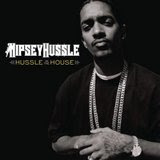 If you missed this week's Money & Music Segment, it was Heavy!!! Joined by up and coming artist, R.E.U.B. Not only can this dude flow, but his message is positive & up lifting.
If you missed this week's Money & Music Segment, it was Heavy!!! Joined by up and coming artist, R.E.U.B. Not only can this dude flow, but his message is positive & up lifting.If you don't think so??? Enjoy some of his HOTT New Heat:
"Soul of a Hustla:: http://www.zshare.net/audio/649873498c4c403d/
"Change 4 the Better": http://www.zshare.net/audio/649982438e53ff61/
R.E.U.B's official: www.myspace.com/reubmuzik1
So while your enjoying the music, now it's time to step your Game up, and learn ya something. This week's Money & Music Segment had some serious knowledge. No worries if you missed it? Check it: MONEY & MUSIC SHOW - GET YOUR FINANCIAL TIPS RIGHT HERE!"
In summary, R.E.U.B's song "Soul of a Hustla" gives true flava of what it means to go out and expand your "Brand", "YOU"!!
 Personal branding can single an individual out as an expert in their field, but are there downfalls to personal branding vs. company branding?
Personal branding can single an individual out as an expert in their field, but are there downfalls to personal branding vs. company branding? Truth is personal branding is easier than company branding. Why? Because if you believe in your talent, in your skills and ability - it's easier to sell what you believe in. Your image is already created - you just have to market it. How do you market yourself? That's easy. You must become:
A pro in your industry; an expert in your field.
With that said are there downfalls to personal branding? Absolutely. Unless you plan to work until your last living day, it will be difficult to transition the brand to someone else. After all you are the BRAND! If you are ok with the fact that in order to transition out of the brand you will need to create a new one that your consumers can grasp onto then personal branding may just be for you.
When branding yourself remember that you must create a strong and consistent brand. You cannot skimp just because it's about you.
Strong brands are clear about who they are and what they are not; which is why branding yourself can be an easy process. You already know who you are and what you are not. Strong brands are also consistent; it's easy to be consistent in who you are.
Let's take for example Madonna. She was her brand. Since the start of her career she has had the ability to change consistently throughout her career. This made her stand out from among other performers. This in essence strengthened her individual brand.
By branding yourself effectively you will:
- Establish yourself as an expert in your chosen field.
- Build a solid reputation within your industry.
- Increase your notoriety and improve your perceived value in the marketplace.
The key to successfully branding yourself and doing it effectively is to first establish a personal brand identity. Once you have done that focus that message on who you are and what you stand for within your chosen field. Your final step is to get the word out through a variety of media channels that are viewed by the people most likely to be interested in your message.
As people begin to see your name and become aware of the benefit and knowledge that you offer, before you know it thousands of people will not only know who you are but they will begin to seek out your services and expertise. They will identify with your brand which is "YOU"!!! Now, you see the GREEN Button, DON'T PRESS IT!!! It's like the Bat Mobile, you don't know where it will take you. So fortunately, "Money" Mike went ahead and pressed it for us, helping us to focus on stepping our Financial Game Up, giving some basic tips on understanding how to Expand your Credit.
Now, you see the GREEN Button, DON'T PRESS IT!!! It's like the Bat Mobile, you don't know where it will take you. So fortunately, "Money" Mike went ahead and pressed it for us, helping us to focus on stepping our Financial Game Up, giving some basic tips on understanding how to Expand your Credit.For starters, if you don't know your credit profile, It's FREE! Yessir, once a year by law we all have the opportunity to request a Free Credit Report, not by the faker websites, only this site here, can you be assured at NO Charge, you will Know what they know about you. So don't waste time??? It's FREE & You may just find out who's messing your Credit up.
Click here: http://www.annualcreditreport.com/
Now that you have a start to understanding your Credit. Here are some steps to consider:
1. Establishing Credit
3. Improve Your Credit Score
4. Getting Out of Debt
5. Student Loans
6. Credit Cards for Business
With all that said, Business Owners, remember as R.E.U.B. said well, keep your Personal Business separate from your Professional Business. Set up a business account, so you keep begin to pay your business expenses through the business, and in time be credited for building your business, and credit worthiness to institutions or investors. For more sophisticated business owners, note that if you are incorporated, Dun & Bradstreet is the Business Reporting agency to the Credit Issuers, by establishing your Dun & Bradstreet report, this will in time have those same Lending Institutions calling your Business for more credit, and NOT YOU!! Keep your Business Separate from your Personal accounts. And if they offer you the credit lines, take them, use them wisely or don't use them at all, but you never know when that day will come when you actually need that Credit Line to take your business or profession to the next level.
For more information visit: http://www.dnb.com/



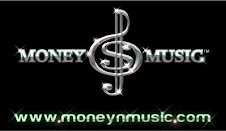.jpg)



.jpg)







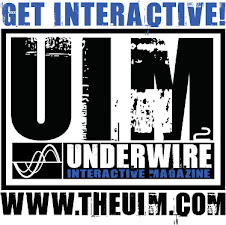.jpg)




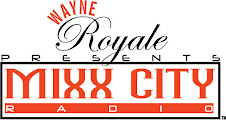.jpg)





.jpg)

.jpg)











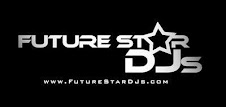







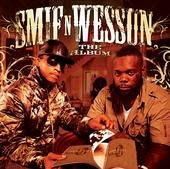



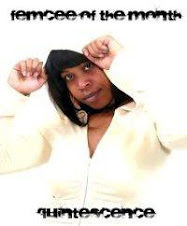














.jpg)
